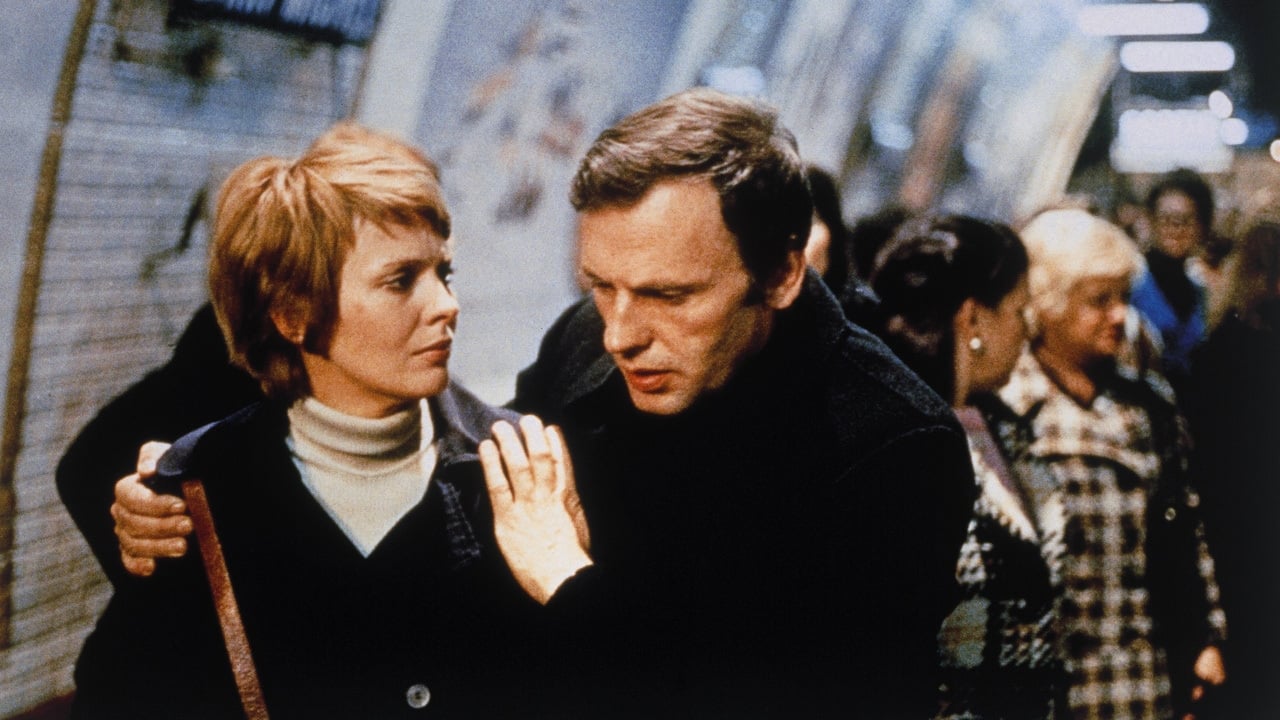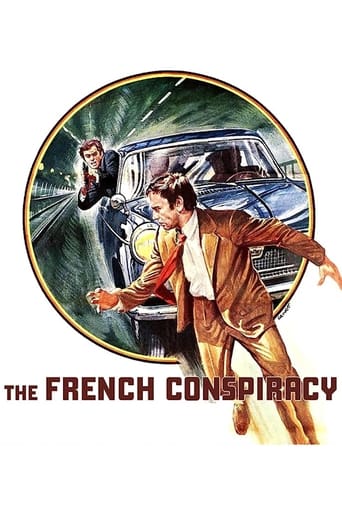Diagonaldi
Very well executed
TrueJoshNight
Truly Dreadful Film
Pluskylang
Great Film overall
Abegail Noëlle
While it is a pity that the story wasn't told with more visual finesse, this is trivial compared to our real-world problems. It takes a good movie to put that into perspective.
Cristi_Ciopron
Leisurely paced and atmospheric, shot in the slightly hazy and charming style of the '70s, the intriguing, bitter and sincere political Leftist thriller benefits from a choice cast—Jean—Louis Trintignant, Michel Piccoli, Jean Seberg (--with her slightly annoying foreign accent; which doesn't mean she ain't straight hot--), Gian Maria Volonté, Michel Bouquet, Bruno Cremer, Philippe Noiret (--unmatched when shown eating--), François Perier, Roy Scheider and Nigel Davenport, L'ATTENTAT by Yves Boisset, dialogs written by Jorge Semprun, scored by Ennio Morricone, is a political subject treated as a Kafkian thriller; and I consider it a very well made movie. In fact, an impressive thriller from the '70s.Quietly exciting, a refined uncanny thriller, L'ATTENTAT leaves the impression of a deeply realist and lucid drama.Morricone composed a vintage score, as good, in the political movies' realm, as the one written by Vangelis for the feature filmed by Gavras with Lemmon.Volonté plays a deeply respectable, presumably, leftist leader from an Oriental country. Piccoli is his nemesis. Noiret does an awesome cameo.The dialectic of the appearances is put to good use. The theme of the confession and of confessing is one of the main themes.With such actors, with such a score …; a prosaic political subject becomes a Kafkian labyrinth, much coldness, betrayal, wickedness and shame.The movie begins a bit preachy with some off-putting tirades and leftist sexual harshness, but it quickly becomes an enthralling drama. Yes, beautifully written and exquisitely played by giants like Volonté, Noiret, Perier, Cremer, Trintignant. Some of them—like Volonté and Trintignant—were familiars of the political cinema. The directing is amply helped by all these ingredients—cast, score, photography—which boost the movie and give it an enigmatic, original charm. This gusto is remarkable.The Leftist characters seem a bit sententious and occasionally declamatory, uttering rubbish tirades of patriotism, Semprun did a mediocre job; but this is only occasional ballast. In contrast, the storyline is surprisingly carefully and masterly followed. Some brutality is considered to manifest the leftist vigor, I believe. Other than that, the script is wonderful—original and interesting.So, with his intriguingly exciting thriller, distinctly impressionist, almost _intimist in its quiet and perceptive take, of a naturally modulated pace, so characteristically European, Boisset has a name in the political cinema. Boisset turned a political subject of an almost terminally abject guy into a work of poetry. Turns it into a realm of tenebrous poetry.I'm bit of a political cinema fan—especially if French or Italian, leftist and from the '70s.
Chris400
Put aside some of the tiny details, I find the movie excellent. It is very hard to view it and considering the average viewer's grade, it is interesting to see how this movie did not stay in circulation. They did make a lot of movies available on VHS and later on DVD that are really not as good as this one and it makes you wonder if there was not a certain influence behind it (ie political influence to not keep this movie in circulation, which would make this movie closer to reality...). How much of the movie is based on the true story, I don't know, but it seems like all of it could be. The atmosphere of the movie is suspenseful. The nature of the scenario is such that you don't know who can be trusted, so you can imagine the problem of having a secret that people want to get rid off... The events appear to be more realistic than modern movies. Nothing fancy, just some cold war like situation with people that could be anybody and nobody (you or your neighbor or the guy you work with). The movie starts like something is already about to explode. Ennio Morricone's music was such that when the movie started on TV some decades ago, I was not planning on watching it, but I simply sat down and had to see the rest of it because nothing else seemed to matter and I never regretted it. Some people don't seem to like the acting, but remember that this is the 70s and this is how people were behaving and talking then. No Brad Pits or above reality acting. No theater drama or over-acting. This acting is almost documentary like based on the French culture at the time, which once again makes it seem closer to reality. Everyone know from history that those situations existed. Governments moving their ponds, killing whom ever got in the way, sometimes playing with each other and sometimes against each other. Just think about the banana republics, the role of some countries to control former colonies or destabilize colonies... and of course, with the tensions within the countries for some parties to support bad actions "for national interest" (even if it is for personnel political gain) and those that are against it. Sometimes, it was not clear whether actions were taken to fight communist or to favor financial gains for the country and in the end, it all boils down to "how can you trust" and how long before you trust the wrong person? There is the world of simple workers and the underworld of politics, crime, corruption, power struggles... and I think this movie gives you a good snapshot of it and maybe that's why it's now almost impossible to find in spite of the average rating...
dbdumonteil
The precedent user found it hard to catch up with a muddled screenplay;it is sure easy to see why: first he saw a digest version (93 min) whereas the French version has a running time of two hours. And the subject deals with an affair which was widely talked about in the French sixties,but which is virtually unknown abroad:Sadiel (Volonte) was inspired by real-life character Ben Barka who was murdered in mysterious circumstances .I was still a child when it happened but I can remember my mother talk about it indignantly.Yves Boisset is ,par excellence,the French political director.But he was still immature at the time;all the qualities he would display in later works ("RAS" "Dupont-Lajoie" "Allons Enfants" "Espions Lève-Toi" and our French "Paths of gloryesque" "Le Pantalon Rouge" ) are absent here: the tightness,the directness and above all the accessibility.His screenplay looks like a hotchpotch made of all the trendy subjects which were not even those of the Ben Barka era: May 68 and the CRS (the riot police),the guys singing Hare Krishna and more,as the precedent user pointed out.An international cast does not help ;two American stars were hired:Jean Seberg who was fluent in French and sadly who was to die several years later in mysterious circumstances and Roy Scheider who manages quite well with the French language too.Plus all the who's who of the French actors :Jean -Louis Trintignant,Michel Bouquet,Michel Piccoli,and the politically committed Italian Gian Maria Volonte.But it makes the matters worse: it looks like a stream of stars who do not seem to believe in the parts they are playing.
petershelleyau
Perhaps it's because the version of this film I saw was only 93 minutes and dubbed into English, but this French/Italian/German spy thriller is doomed by a screenplay and a director that never clarifies the parties concerned. Whilst references are made to Algeria, the Black Panthers, Communists, students, French police and Secret Service, the CIA, Palestine, Jordan, Egypt, Vietnam, and even the Gestapo, since the political allegiances are obtuse, it's hard to care about a kidnapping or a protagonist on the run.
Roy Scheider's presence is presumably for the American market, and though he has what amounts to a cameo, he at least appears to be speaking in his own voice - even with bad lip-synching. A brunette and dubbed Jean Seberg has more screen time. She even gets a tender moment with an extreme close-up, but her role remains thankless, for the most part, and she isn't particularly good in what she has to do.The only suggestion of humor in the whole treatment is the convenient appearance of a tram and a bus to rescue Jean-Louis Trintignant from two different chases.Director Yves Boisset stages a riot with convincing mob pandemonium, and presents a tracking shot of a wall of phone tappers. There are two good edits - one from flying wild birds to pellet shooting, and the other from Scheider on the phone saying "Of course I'm not going to tell anyone" to the conversation being tapped. The discordant music of Ennio Morricone is a good addition to the chase scenes, however a stabbing uses orange colored blood, and the New Year's Eve setting is never exploited.

